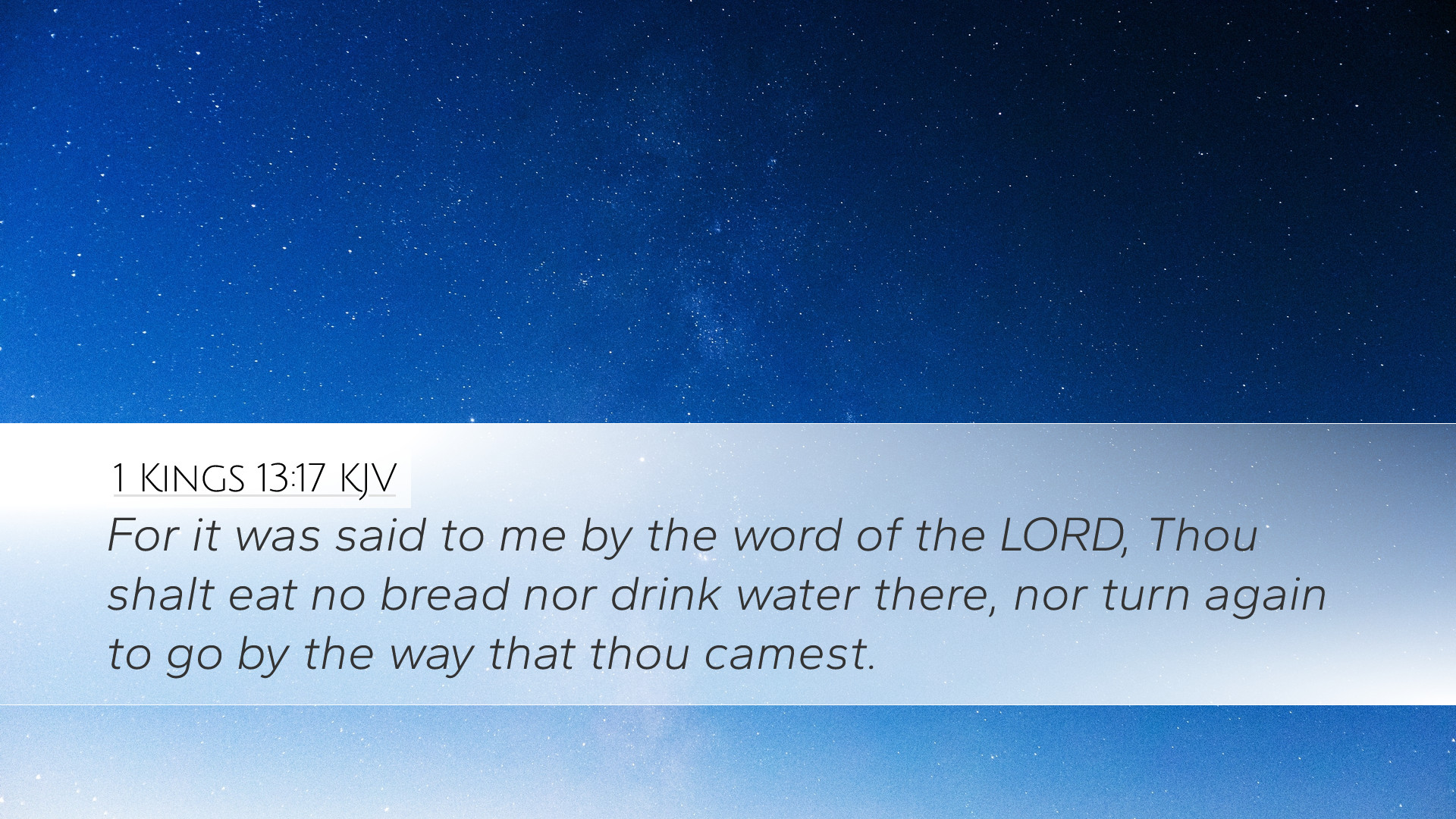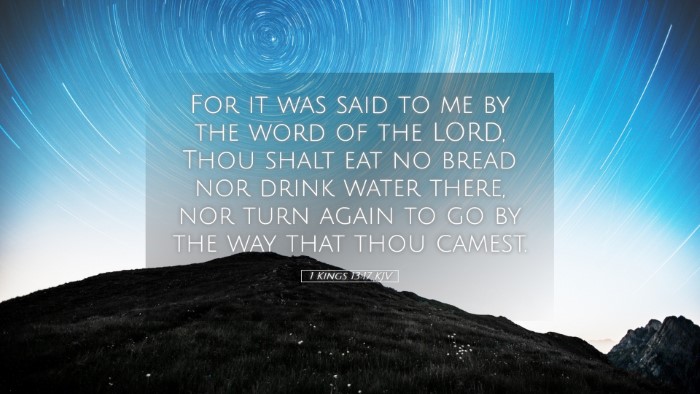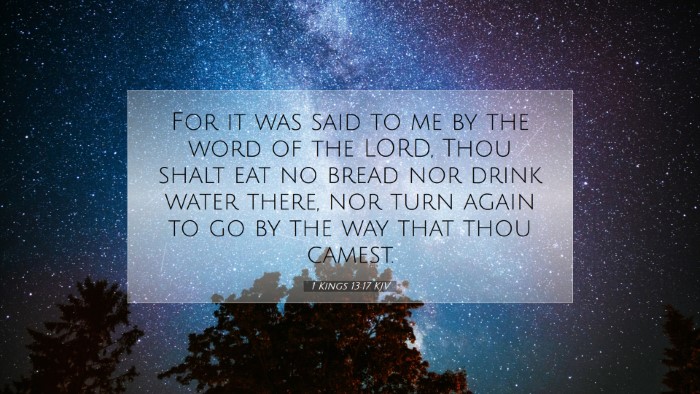Commentary on 1 Kings 13:17
This verse records the divine instruction received by a man of God, emphasizing the seriousness of obedience to God’s commands. It is a pivotal moment in the narrative that teaches lessons on faithfulness, the dangers of compromise, and the importance of divine revelation.
Text of 1 Kings 13:17
"For it was said to me by the word of the LORD, You shall neither eat bread nor drink water there, nor return by the way that you came." (1 Kings 13:17, ESV)
Exegesis of the Verse
The context of this passage reveals a divided kingdom, with Jeroboam's idolatrous practices threatening true worship of Yahweh. The man of God is sent to confront these practices, highlighting God's rejection of false worship.
Divine Command
In this verse, the man of God articulates the command he received from the Lord, which underscores the importance of adhering strictly to God's instructions. As Matthew Henry notes, "The providence of God requires a careful stewardship of the messages He imparts to His servants." Whether by divine command, angelic visitation, or prophetic utterance, the Word of God carries authority and demands obedience.
The Nature of Obedience
Albert Barnes emphasizes that this command was not arbitrary but was meant to protect the man of God from compromise and the influences of corrupt society. Eating bread and drinking water could symbolize partaking in the social practices of a corrupt environment that could lead to moral and spiritual decay. The command to avoid returning by the same way indicates a need for separation from the influences that would lead him astray.
Theological Insights
The teaching in 1 Kings 13:17 intertwines with broader theological themes found throughout Scripture. It raises profound questions concerning divine guidance, human responsibility, and the sanctity of God’s word.
God’s Guidance
The man of God’s experience signifies that divine guidance requires meticulous attention. According to Adam Clarke, “one must not be influenced by the circumstances around, but remain steadfast in what God has commanded.” This highlights the need for discernment and reliance on spiritual insight in navigating life’s challenges.
Warnings Against Compromise
This verse serves as a warning against the subtlety of compromise. The allure of social engagement can often lead believers to abandon their distinctiveness as children of God. It's an important reminder that mixing with that which is contrary to God’s command can have dire consequences. Matthew Henry states, “Those who turn aside from the path of duty often lead themselves into paths of destruction.”
Pastoral Applications
- Faithfulness to God’s Word: Pastors and leaders must remain diligent in their quest for God’s guidance. This involves prayerful consideration and the commitment to uphold scriptural standards.
- Understanding the Cost of Disobedience: Just as the man of God was instructed to avoid certain actions, believers must recognize the importance of obedience, as failure to heed divine instruction can lead to serious spiritual ramifications.
- The Role of Biblical Community: Encouragement to provide counsel and hold each other accountable can cultivate an environment where divine guidance is sought earnestly.
Conclusion
In summary, 1 Kings 13:17 serves as a powerful reminder of the necessity of fidelity to God's commands. Believers are called to a life of obedience that reflects their covenant relationship with God. As Albert Barnes poignantly states, “Obedience is the pathway to divine favor.” This text challenges us to consider our fidelity to God's word amidst a culture that often diverges from biblical truths.


